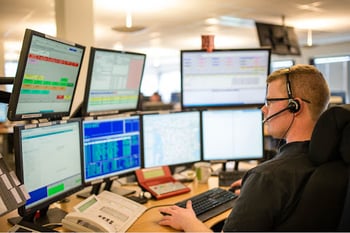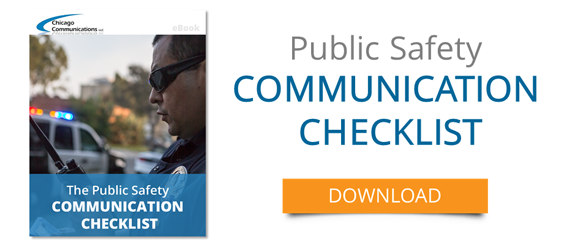
A dispatch console is becoming an essential tool for anyone who wants to ensure that customers, workers, and the public are all connected and protected.
What are the functions of dispatch consoles, and what are the benefits of using this technology?
Centralized Communications
When some people hear the word “dispatch,” they think of 911 call centers and taxi companies. Of course, consoles and top-quality two-way radios are critical for those folks. A dispatch console is simply a way to centralize communication from one location. That’s why they’re used in hospitals, manufacturing settings, the hospitality industry, utilities, amusement parks, educational institutions, event venues, and more — anywhere where instant, seamless, coordinated communication is essential.
Security Teams
In an emergency or incident, a dispatch console allows one person to monitor multiple sites. They can monitor footage and send officers to a specific area with information so they can do their job. The cameras and people provide real-time data; you get instant communication and the ability to react, call for backup, and get support instantly.
Coordination Across Sites
These days, most organizations are spread out across wide areas, across buildings, campuses, states, and countries. A dispatch console helps keep all the sites safe, even if they are not nearby. The dispatcher is a key person responsible for monitoring communications; they can also send an all-call message to multiple sites. Today’s consoles, like Motorola’s Avtec Scout, allow dispatchers to monitor channels to talk to specific users. They can also patch into different talk groups. They can see everyone’s locations using the GPS.
The Big Picture
Anyone who needs centralized communications can benefit from a dispatch console. When you have a security team and cameras, you need somebody to monitor data, communications, cameras, and alerts. The reception desk at a hotel receives calls for guests’ needs, including emergencies. A public works dispatcher can monitor work tickets and send out team members.
In Case of Emergency
In some emergencies, people need to be evacuated to a secondary location called an Emergency Operations Center (EOC). If a facility is breached, a fire breaks out, or any other emergency, the dispatch console can be operated remotely.
Protecting Assets and Livelihoods
The main reason people use consoles is to protect people and property. If there is a breach, a dispatcher can talk to a group of officers immediately. At a hotel or resort, a console helps meet the daily needs of guests, and if someone falls or experiences a medical emergency, someone will be there to help them.
Flexible and Customizable
A dispatch console can be an essential tool for a large command center—or a single user on a laptop, working remotely—to monitor and dispatch work tickets. If there’s an emergency across the street, a fire in Las Vegas, or trouble in Houston, the right information is getting to the right people instantly.
Instant Interoperability
A dispatch console like the Avtec Scout gives you instant, robust communication. It provides interoperability with multiple radio systems and technologies. It is a cost-effective way to bring everyone together for a safer, more efficient workplace.
Let’s say you have a special event, like a music festival. A console can monitor multiple stages and areas and dispatch roadies or security personnel as needed.
Who's Behind The Curtain?
Remember how the Wizard of Oz supposedly controlled everything from behind a giant curtain? That’s what a dispatch console can do—provide a bird's-eye view of your operation, keeping everyone safe, secure, and in touch.
To get expert assistance building or upgrading your secure communication system, contact Chicago Communications today.



